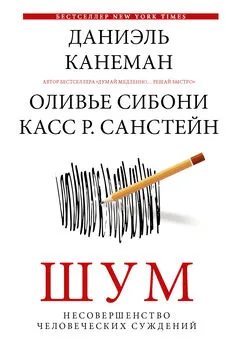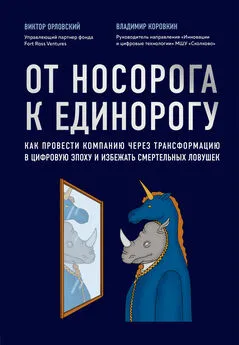Оливье Сибони - Думай и не ошибайся! Как избежать ловушек сознания
- Название:Думай и не ошибайся! Как избежать ловушек сознания
- Автор:
- Жанр:
- Издательство:Литагент АСТ (БЕЗ ПОДПИСКИ)
- Год:2021
- Город:Москва
- ISBN:978-5-17-133321-8
- Рейтинг:
- Избранное:Добавить в избранное
-
Отзывы:
-
Ваша оценка:
Оливье Сибони - Думай и не ошибайся! Как избежать ловушек сознания краткое содержание
Думай и не ошибайся! Как избежать ловушек сознания - читать онлайн бесплатно ознакомительный отрывок
Интервал:
Закладка:
Сверхуверенность
Moore, Don A., and Paul J. Healy. “The Trouble with Overconfidence.” Psycho-logical Review 115, no. 2 (2008): 502–17.
Svenson, Ola. “Are We All Less Risky and More Skillful Than Our Fellow Drivers?” Acta Psychologica 47, no. 2 (1981): 143–48.
Thaler, Richard H., and Cass R. Sunstein. Nudge: Improving Decisions About Health, Wealth, and Happiness . New Haven, CT: Yale University Press, 2008.
Ошибка планирования и неоправданный оптимизм
Buehler, Roger, Dale Griffin, and Michael Ross. (1994). “Exploring the ‘Planning Fallacy’: Why People Underestimate Their Task Completion Times.” Journal of Personality and Social Psychology 67, no. 3 (1994): 366–81.
Flyvbjerg, Bent, Mette Skamris Holm, and Soren Buhl. “Underestimating Costs in Public Works, Error or Lie?” Journal of the American Planning Association 68, no. 3 (Summer 2002): 279–95.
Frankel, Jeffrey A. “Over-Optimism in Forecasts by Official Budget Agencies and Its Implications.” NBER working paper no. 17239, 2011.
Сверхточность
Alpert, Marc, and Howard Raiffa. “A Progress Report on the Training of Prob-ability Assessors.” In Judgment Under Uncertainty: Heuristics and Biases, edited by Daniel Kahneman, Paul Slovic, and Amos Tversky, 294–305. Cambridge: Cambridge University Press, 1982.
Russo, J. Edward, and Paul J. H. Schoemaker. “Managing Overconfidence.” Sloan Management Review 33, no. 2 (1992): 7–17.
Недооценка конкурентов
Cain, Daylian M., Don A. Moore, and Uriel Haran. “ Making Sense of Overconfidence in Market Entry.” Strategic Management Journal 36, no. 1 (2015): 1–18.
Dillon, Karen. “‘I Think of My Failures as a Gift.’” Harvard Business Review, April 2011, 86–89.
“How Companies Respond to Competitors: A McKinsey Survey.” McKinsey Quarterly, April 2008.
Moore, Don A., John M. Oesch, and Charlene Zietsma. “What Competition? Myopic Self-Focus in Market-Entry Decisions.” Organization Science 18, no. 3 (2007): 440–54.
Rumelt, Richard P. Good Strategy/Bad Strategy: The Difference and Why It Matters. New York: Crown Business, 2011.
Эволюционная обусловленность искажений
Santos, Laurie R., and Alexandra G. Rosati. “The Evolutionary Roots of Human Decision Making,” Annual Review of Psychology 66, no. 1 (2015): 321–47.
Польза оптимизма
Rosenzweig, Phil. “The Benefits – and Limits – of Decision Models.” McKinsey Quarterly, February 2014, 1–10.
Left Brain, Right Stuff: How Leaders Make Winning Decisions. New York: Public Affairs, 2014.
Разное
Graser, Marc. “Epic Fail: How Blockbuster Could Have Owned Netflix.” Variety, November 12, 2013.
Polaroid
Rosenbloom, Richard S., and Ellen Pruyne. “Polaroid Corporation: Digital Im-aging Technology in 1997.” Harvard Business School case study no. 798–013, October 1977. https://www.hbs.edu/faculty/Pages/item.aspx?num=24164.
Tripsas, Mary, and Giovanni Gavetti. “Capabilities, Cognition, and Inertia: Evidence from Digital Imaging.” Strategic Management Journal 21, no. 10 (2000): 1147–61.
Инерционность в распределении ресурсов
Bardolet, David, Craig R. Fox, and Don Lovallo. “Corporate Capital Allocation: A Behavioral Perspective.” Strategic Management Journal 32, no. 13 (2011): 1465–83.
Birshan, Michael, Marja Engel, and Olivier Sibony. “Avoiding the Quicksand: Ten Techniques for More Agile Corporate Resource Allocation.” McKinsey Quarterly, October 2013, 6.
Hall, Stephen, and Conor Kehoe. “How Quickly Should a New CEO Shift Corporate Resources?” McKinsey Quarterly, October 2013, 1–5.
Hall, Stephen, Dan Lovallo, and Reinier Musters. “How to Put Your Money Where Your Strategy Is.” McKinsey Quarterly, March 2012, 11.
Привязка
Englich, Birte, Thomas Mussweiler, and Fritz Strack. “Playing Dice with Criminal Sentences: The Influence of Irrelevant Anchors on Experts’ Judicial Decision Making.” Personality and Social Psychology Bulletin 32, no. 2 (2006): 188–200.
Galinsky, Adam D., and Thomas Mussweiler. “First Offers as Anchors: The Role of Perspective-Taking and Negotiator Focus.” Journal of Personality and Social Psychology 81, no. 4 (2001): 657–69.
Strack, Fritz, and Thomas Mussweiler. “Explaining the Enigmatic Anchoring Effect: Mechanisms of Selective Accessibility.” Journal of Personality and Social Psychology 73, no. 3 (1997): 437–46.
Tversky, Amos, and Daniel Kahneman. “Judgment Under Uncertainty: Heuris-tics and Biases.” Science 185 (1974): 1124–31.
Наращивание вовлеченности
Drummond, Helga. “Escalation of Commitment: When to Stay the Course.” Academy of Management Perspectives 28, no. 4 (2014): 430–46.
Royer, Isabelle. “Why Bad Projects Are So Hard to Kill.” Harvard Business Review, February 2003, 48–56.
Staw, Barry, M. “The Escalation of Commitment: An Update and Appraisal.” In Organizational Decision Making, edited by Zur Shapira, 191–215. Cambridge: Cambridge University Press, 1997.
“The Escalation of Commitment to a Course of Action.” Academy of Management Review 6, no. 4 (1981): 577–87.
GM Saturn
Ritson, Mark . “Why Saturn Was Destined to Fail.” Harvard Business Review, October 2009, 2–3.
Taylor, Alex, III . “GM’s Saturn Problem.” Fortune, December 2014.
Редкие случаи прекращения финансирования
Feldman, Emilie, Raphael Amit, and Belen Villalonga. “Corporate Divestitures and Family Control.” Strategic Management Journal 37, no. 3 (2014) 429–46.
Horn, John T., Dan P. Lovallo, and S. Patrick Viguerie. “Learning to Let Go: Making Better Exit Decisions.” McKinsey Quarterly, May 2006, 64.
Lee, Donghun, and Ravi Madhavan. “Divestiture and Firm Performance: A Meta-Analysis.” Journal of Management 36, no. 6 (February 2010): 1345–71
Прорывные технологии
Christensen, Clayton M. The Innovator’s Dilemma: When New Technologies Cause Great Firms to Fail. Boston: Harvard Business School Press, 1997.
Netflix и Qwikster
Wingfield, Nick, and Brian Stelter. “How Netflix Lost 800,000 Members, and Good Will.” New York Times, October 24, 2011.
Искажение статус-кво
Kahneman, Daniel, Jack L. Knetsch, and Richard H. Thaler. “Anomalies: The Endowment Effect, Loss Aversion, and Status Quo Bias.” Journal of Economic Perspectives 5, no. 1 (1991): 193–206.
Samuelson, William, and Richard Zeckhauser. “Status Quo Bias in Decision Making.” Journal of Risk and Uncertainty 1, no. 1 (1988): 7–59.
Примечания
– крупные корпорации отказываются от провальных инициатив куда реже, чем можно ожидать: McKinsey study of 463 executives, 2009. See “Strategic Decisions: When Can You Trust Your Gut?” Interview with Daniel Kahneman and Gary Klein. McKinsey Quarterly, March 2010.
– Согласно исследованию принятых решений о закрытии бизнеса:Horn, John T., Dan P. Lovallo, and S. Patrick Viguerie. “Learning to Let Go: Making Better Exit Decisions.” McKinsey Quarterly, May 2006, 64.
Неприятие риска
Koller, Tim, Dan Lovallo, and Zane Williams. “Overcoming a Bias Against Risk.” McKinsey Quarterly, August 2012, 15–17.
Недостаток инноваций в крупных корпорациях
Armental, Maria. “U. S. Corporate Cash Piles Drop to Three-Year Low.” Wall Street Journal, June 10, 2019.
Christensen, Clayton M., and Derek C. M. van Bever. “The Capitalist’s Dilemma.” Harvard Business Review, June 2014, 60–68.
Grocer, Stephen. “Apple’s Stock Buybacks Continue to Break Records.” New York Times, August 1, 2018.
Неприятие потерь
Kahneman, Daniel, and Amos Tversky. “Prospect Theory: An Analysis of Decision Under Risk.” Econometrica 47, no. 2 (1979): 263–91.
Ретроспективное искажение
Baron, Jonathan, and John C. Hershey. “Outcome Bias in Decision Evaluation.” Journal of Personality and Social Psychology 54, no. 4 (1988): 569–79.
Fischhoff, Baruch. “An Early History of Hindsight Research.” Social Cognition 25, no. 1 (2007): 10–13.
“Hindsight Is Not Equal to Foresight: The Effect of Outcome Knowledge on Judgment Under Uncertainty.” Journal of Experimental Psychology: Human Perception and Performance 1, no. 3 (1975): 288–99.
Fischhoff, Baruch, and Ruth Beyth. “‘I Knew It Would Happen’: Remembered Probabilities of Once-Future Things.” Organizational Behavior and Human Performance 13, no. 1 (1975): 1–16.
Ловушка сюжета и ретроспективное искажение в трудах по истории
Risi, Joseph, et al. “Predicting History.” Nature Human Behaviour 3 (2019): 906–12.
Rosenberg, Alex. Ho w History Gets Things Wrong: The Neuroscience of Our Addiction to Stories. Cambridge, MA: MIT Press, 2018.
Приход Черчилля к власти в 1940 году
Shakespeare, Nicholas. Six Minutes in May: How Churchill Unexpectedly Became Prime Minister . London: Penguin Random House, 2017.
Ретроспективное искажение в организациях
Thaler, Richard H. Misbehaving: The Making of Behavioral Economics . New York: W. W. Norton, 2015.
Парадокс «робкий выбор, смелый прогноз»
Kahneman, Daniel, and Dan Lovallo. “Timid Choices and Bold Forecasts: A Cognitive Perspective on Risk Taking.” Management Science 39, no. 1 (1993): 17–31.
March, James G., and Zur Shapira. “Managerial Perspectives on Risk and Risk Taking.” Management Science 33, no. 11 (1987): 1404–18.
Примечания
– самый значительный вклад психологии в поведенческую экономику: Kahneman, Daniel. Thinking, Fast and Slow . New York: Farrar, Straus and Giroux, 2011, 360.
Капитализм и дальняя перспектива
Barton, Dominic, and Mark Wiseman. “Focusing Capital on the Long Term.”McKinsey Quarterly, December 2013.
Читать дальшеИнтервал:
Закладка:


![Владимир Коровкин - От носорога к единорогу [Как провести компанию через трансформацию в цифровую эпоху и избежать смертельных ловушек] [litres]](/books/1064401/vladimir-korovkin-ot-nosoroga-k-edinorogu-kak-pro.webp)




